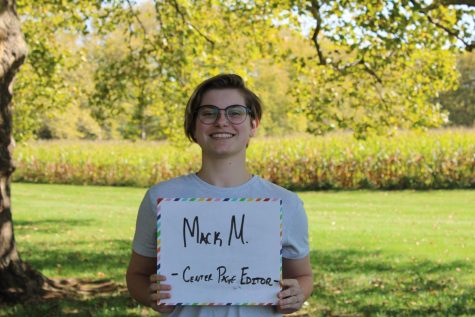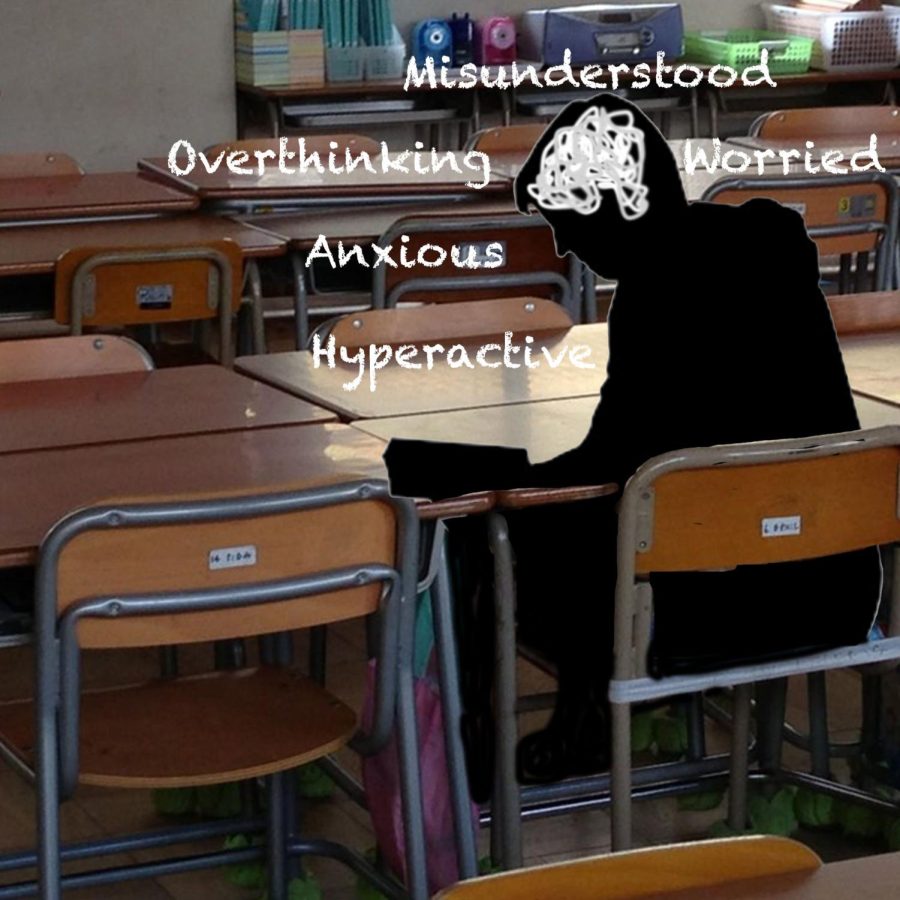Students battle the stigma of ADHD in high school
Teenagers’ struggle with mental disorders is bad enough- adding extra stress from school won’t help.
Across the nation, people suffer from learning disabilities. From entrepreneurs who own bustling companies, to first graders just learning to read, we see it around us all the time. Do schools accommodate, communicate, and educate on these matters? More specifically, can students of Southern Lehigh create an inclusive space for peers with learning differences such as ADHD?
ADHD is an acronym for Attention Deficit Hyperactivity Disorder. ADHD in a person can cause trouble focusing, inability to sit still, excessive talking, excessive physical movement, and other symptoms of that nature. These attributes, though, can make it difficult for students to learn in a traditional school setting.
At Southern Lehigh High School, block periods are 77 minutes long. A typical student, more often than not, can sit through and pay attention during the majority of the class period. Students with ADHD have an attention span that is much, much smaller than that. The average student who has ADHD has an attention span that is three seconds shorter than the national average of 12 seconds. This makes it burdensome for many to retain the information being given to them.
In 1973 the federal government passed the Americans with Disabilities Act. In Section 504 specifically of the Rehabilitation Act, it states, “Kids who are diagnosed with specific learning disabilities’ can acquire accomodations for education… Regardless of how well he or she performs in school, a student who has trouble concentrating, reading, thinking, organizing or prioritizing projects, among other important tasks, because of ADHD may have a disability and be protected under Section 504”. This resulted in a joint action with schools across America and the government to enact 504 and IEP plans.
As previously mentioned, 504 and IEPs provide students with learning disabilities with accommodations in the classroom. Personally, I am granted extra time on tests, a different testing room, along with the ability to use fidget toys, cubes, or stress balls.
“[SLHS does well in] identifying students and providing [504] plans and help,” said school psychologist Mr. Cotie Strong. “We err on the side of support rather than denial.”
Though, there is a big problem with 504 plans – the stigma behind them. More often than not, students are too afraid to be able to ask for their accommodations. Embarrassment over needing to leave the class to go somewhere else, or being kept behind after class for a test is nerve-wracking for students.
According to a 2020 study by Trunk, Russo and Trammell, titled Disability Stigma on Campuses, “researchers have found that students with disabilities are less likely to seek accommodations through offices of disabilities or other student support offices when they perceive greater levels of environmental stigmatization… Perceived stigma on campus related to mental health disorders may cause students with learning disabilities to choose to refrain from disclosing their disabilities… to [the] accommodations they may be legally entitled to receive.”
In SLHS, these learning disabilities aren’t widely taught, leaving room for miscommunication or lack of knowledge on the subject. How are you supposed to be a student who sympathizes with someone who’s asking for accommodations, when you, yourself don’t understand why they are asking for them?
“Some students don’t want to stand out, [or] not be viewed as ‘different’,” Mr. Strong said, “[but] odds are other students in the class have the same thing, and that they aren’t alone.”
Students with ADHD are completely deserving of their accommodations, and being a member of that group, I can confirm that the stigma of asking for said accommodations is definitely present at SLHS.
“If the true beliefs…are that students with impairments get unfair advantages or that they lack the same academic capabilities as their peers who do not have the same disabilities, then the organizational culture remains negative,” said Trunk, Russo, Trammell in their study.
How can the teachers, students, and administration create a more safe environment for these students then? If the staff and students of SLHS take the time to try to understand the people instead of seeing them only for the label of their diagnosis, then things will change.
For decades, people stigmatized things they didn’t understand. If students and staff simply took even 20 minutes to figure out why ADHD-diagnosed students needed accommodations, then students struggling with ADHD will be even more comfortable using the support provided to them. These 20 minutes could be used in a spartan period, or a study hall. Educating yourself is important, so using the time in these moments can benefit the people who have learning disabilities, or ADHD more specifically.
In short, SLHS does a good job providing the support and (when asked) accommodating students with ADHD well. But, Southern Lehigh should begin providing more education to all students regarding the subject of ADHD or learning disabilities in general. School shouldn’t be a place for discrimination, but a place for an equal learning experience.

Senior Mack Morgan is a second-year staff reporter and the current Center Page editor. She plays offense on the junior Flyers ice hockey team and enjoys...


